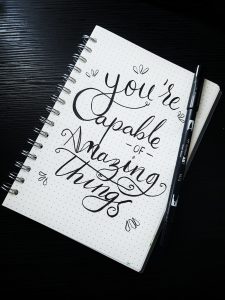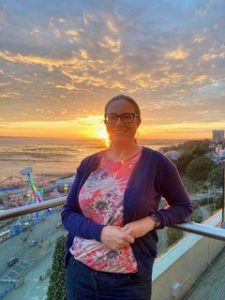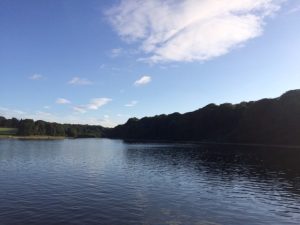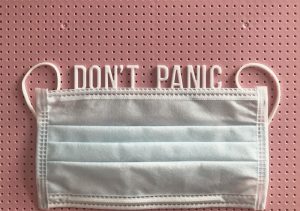Hope for a new conversation…Laurie Spafford reflects pre-Windsor Leadership Dialogue

This autumn I will assist Gillian Chivinge as an intern at the Windsor Leadership Dialogue, which will take place on 14 and 15 January 2020. At the WLD, leaders and thinkers from across the private and public sectors will meet, in order to discuss and deep dive into questions they feel are important.
I am particularly interested in the format of a dialogue – specifically what might be unique and useful about dialogue as a means for learning, and how it would work in practice. I will record some of my thoughts prior to the WLD, as well as afterwards to reflect on my learning.
Coincidentally, speaking and listening have been topics of interest and relevance to me on abstract and concrete levels over the past four months, studying at the University of Oslo. So, I hope to bring my learning from those topics into what I take from the dialogue. I want to understand speaking and listening through the context of dialogue as a way to really bring them together. It seems like dialogue should contain speaking and listening as two vital elements, yet be greater than those two of its parts (although they are not completely separable). Hopefully there will be no “speaker”, or “listener”, but all people integrating and synthesising the two, participating towards the same goal. All seeking dialogue, trying to understand and discover, speaking to listen and listening to speak. It seems important to tell our story, but also be able to listen, and then see it in the context of all other stories in the world.
In my Philosophy course studying Plato’s theory of rhetoric, I thought a lot about speaking in particular. What does it mean to speak well? When and how should we speak, or persuade? How do we justify our speaking? Plato defines rhetoric as any speech that “guides the soul” and seems to suggest that we ought to give our words to the world as if they were medicine for the soul. He says that we should only speak in our private and public lives, if we are lovers of wisdom, if we seek real truth, guiding others towards it. For me, this immediately bore application to the way we contribute our words to the world in the current day. Why do we post on Twitter, argue, and discuss with friends and foes? If we thought about it as guiding their soul, while modestly seeking our soul to be guided by truth too, would we post on Twitter in a different way? Would politicians and public figures speak or write differently if they followed this advice? How should we speak to our enemies?
In an Art History course, I focussed on listening. I studied what it really means to listen deeply, through a piece called 4’33’’, by John Cage. He said (relevant to the WLD) that “what we need is to fumble around in the darkness, because that’s where our lives (not necessarily all of the time, but at least some of the time, and particularly when life gets problematical for us) take place.” Cage saw utilising the power of perceptive listening as uniquely important in gently (but powerfully) challenging the rigid trappings of our society, allowing us to see beauty anywhere. This beauty can only be seen and discovered anew as long as we are willing to give up safe ways of thinking, to fumble in the dark and listen and speak for ourselves.
Having thought about speaking and listening in an abstract way, I also had to genuinely confront them in a long-distance relationship, struggling to listen and be listened to through differences in time and physical space. Speaking well and really listening became important as practical skills, and communication often became fraught when we didn’t speak or listen well to each other. Entering a real dialogue became surprisingly difficult, with so many dynamics and ingrained personal habits getting in the way, and no real dialogue space to enter into with each other. I realised how rare and difficult it was to be speaking for another and listening for another, in dialogue, to seek to understand and keep learning from one another. However, a happy discovery in what was possibly an example of dialogue as a community was finding an amazing group of friends in my flatmates. Despite us all being quite different, we managed to connect in a way to continually support and learn from each other. Working together, we managed to make our kitchen and living room a safe place to openly feel, think, play, laugh, and cry, or to just relax. What are the physical and social spaces that actually facilitate everyone’s stories and reflections to be heard and felt, for a purpose greater than just the telling of the stories themselves?
How do we integrate speaking and listening well, understanding them in the abstract and the concrete? How do we communicate and contribute ourselves, our truth, and have it heard, and how should we open ourselves up to hear others’ voices? Is this dialogue? If it is, how do we think about and then engage in this dialogue, – is there a uniting principle to dialogue? How important is the environment to opening up a space to speak and listen well, to have dialogue? How important is a facilitator, in opening a dialogue? What are the things that usually obstruct dialogue, and what can be practically done to create space for dialogue?
I am hoping that through my assistant internship at the Windsor Leadership Dialogue in January, I will have some of these questions clarified, seeing how and if people from different fields of work communicate, reflect, and share, investigating questions together. I hope I can observe real dialogue in action – learning what can act as a catalyst and enabler, whilst also understanding those things that can halt and impede dialogue.











